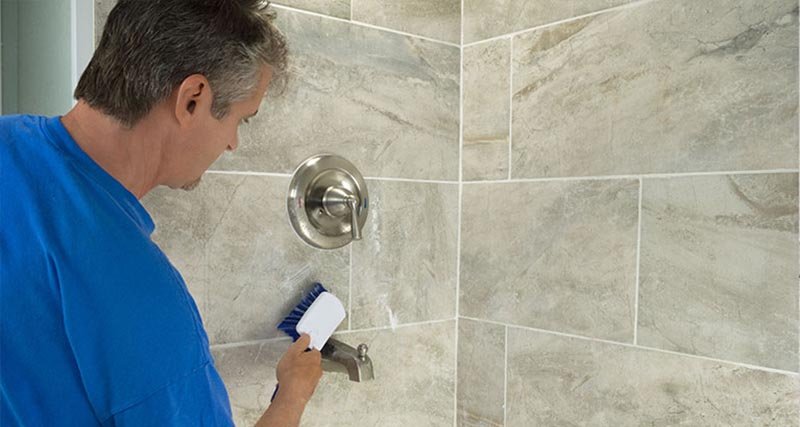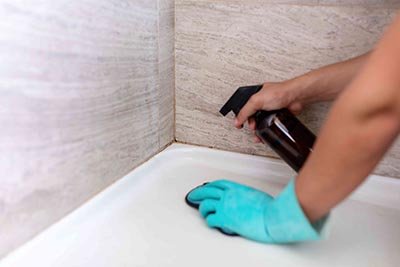
Grout maintenance is an essential aspect of keeping your tiled surfaces clean, hygienic, and aesthetically pleasing. In this comprehensive guide, we delve into the importance of proper grout maintenance and provide valuable insights and tips for maintaining your grout effectively. Whether you’re a homeowner, a business owner, or simply someone interested in understanding the significance of grout maintenance, this blog post is tailored to cater to a general audience seeking to learn more about the subject. Let’s explore the world of grout maintenance and discover how it can enhance the longevity and beauty of your surfaces.
Steps for Proper Grout Maintenance
Grout maintenance in your shower is essential to prevent mold, mildew, and stains, and to keep your shower looking clean and well-maintained. Here are some tips for shower grout maintenance:
- Regular Cleaning:
- Wipe down the shower walls and grout regularly to remove soap scum, shampoo residues, and other potential contaminants.
- Use a mild, pH-neutral cleaner to avoid damaging the grout. Avoid harsh chemicals, as they can erode grout over time.
- Sealing Grout:
- If your grout is not sealed, consider having a high-quality grout sealer applied. This will help repel water and prevent stains. Sealants can wear off over time, so reapply as needed, typically every 1-2 years. We Caulk Showers can do this for you, contact us
- Ventilation:
- Ensure proper ventilation in your bathroom. Use an exhaust fan or open a window to reduce humidity and prevent mold growth. Adequate ventilation helps keep the grout dry.
- Squeegee After Showering:
- Use a squeegee to remove excess water from the shower walls and grout after each use. This helps prevent water from lingering and promoting mold and mildew growth. This is an important step in proper grout maintenance for your shower!
- Avoid Abrasive Cleaners:
- Avoid using abrasive cleaners or scrubbing tools that can damage the grout. Instead, use a soft brush or an old toothbrush to clean the grout lines.
- Baking Soda and Vinegar:
- For tougher stains, mix baking soda with water to create a paste. Apply the paste to the stained grout, let it sit for a while, and then scrub gently. You can also use a mixture of equal parts white vinegar and water for cleaning.
- Professional Cleaning:
- If your grout is heavily stained or if you’re having difficulty maintaining it, consider professional for deep cleaning your bathroom shower. We Caulk Showers uses specialized grout cleaning methods to restore your grout. Get a Free Estimate today!
- Repair Damaged Grout:
- Inspect the grout regularly for cracks or gaps. Repair any damaged areas promptly to prevent water infiltration, which can lead to more significant issues.
- Use Mildew-Resistant Grout:
- If you’re installing new grout, consider using a mildew-resistant grout. These types of grouts are formulated to inhibit the growth of mold and mildew. We Caulk Showers uses epoxy grout which is stain and mildew-resistant and never needs to be sealed to help make grout maintenance easier for you.

Regular grout maintenance and proper cleaning habits can significantly extend the life and appearance of your shower grout. Remember to follow the manufacturer’s recommendations for cleaning and sealing products, and always test a small, inconspicuous area before using a new cleaner or method on your grout.
If you would like someone to get your shower cleaned, sealed and as close to new as possible, give us a call at 908-899-1339 or fill out the form below
How often should you seal grout?
For high-traffic areas, like the main bathroom, you should consider sealing it every six months, while low-traffic areas like the guest bathroom can be resealed every two years.
How often should grout be replaced?
Grout can last a very long time, depending on how well it’s treated. I have seen 40 year old showers with the original grout! Some say you should replace grout every 8–10 years but I disagree. If you are maintaining your grout correctly, it should never need to be replaced!

